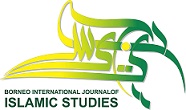Legalization of Informal Hibah and Wasiat through Isbat Hibah and Wasiat in Religious Courts
Abstract
Abstract
Based on the Religious Judiciary Annual Report in 2020, there have been many lawsuits for hibah and wasiat in the religious courts due to informal hibah and wasiat. On the other hand, there are no rules governing the religious courts' authority in legalizing the practice of informal hibah and wasiat. This study initiated the discourse on the legalization of informal hibah and wasiat through isbat hibah and wasiat in the religious courts. Hence, what are isbat hibah and wasiat and their legal basis as a renewal of the religious courts' authority in Indonesia? This study is normative legal research in which legal norms in statutory regulations are examined as research objects. This study's results indicate that informal hibah and wasiat still occur in society, which raises social problems such as conflicts between recipients of informal hibah and wasiat and the heirs of informal hibah and wasiat. These social problems occur when the giver or recipient of informal hibah or wasiat passes away. Meanwhile, the subject or object of the related hibah and wasiat does not yet have a formal foundation. Legal problems related to informal hibah and wasiat lead to legality issues due to the absence of authentic evidence showing that the subject or related object has given or received a certain hibah or wasiat. Even though every legal action must be carried out legally and formally, The concept of isbat hibah and wasiat under the authority of religious courts aims to achieve the certainty, fairness, and legal benefits of informal hibah and wasiat.
Keywords: Legalization, informal hibah and wasiat, isbat, Indonesia Religious Courts.
References
Al-Jazīrī, Abdurraḥman. Kitȧb al-Fiqh ‘alȧ al-Mażȧhib al-Arba‘ah. Juz III. Beirut: Dār al-Kutub al-Ilmiyah, 1990.
Anshori, Abdul Ghofur. Filsafat Hukum Hibah dan Wasiat di Indonesia. Yogyakarta: Gadjah Mada University Press, 2011.
Azikin, Wahyu. “Hibah dan Wasiat dalam Perspektif Hukum Perdata (BW) dan Kompilasi Hukum Islam.” Meraja Journal Vol. 1, No. 3 (November 2018).
Bukhārī, Muḥammad bin Ismail al-. Ṣaḥīḥ al-Bukhārī. Beirut: Dār al-Fikr, 2002.
Depag RI. Al-Qur’an Terjemahan. Semarang: CV. Toha Putra, 1989.
Haryono. “Penegakkan Hukum Berbasis Nilai Keadilan Substantif.” Jurnal Hukum Progresif Vol. 7, No. 1 (April 2019).
Kharlie, Ahmad Tholabi. “Administrasi Perkawinan di Dunia Islam Modern.” Jurnal Bimas Islam Vol. 9, No. II (2016).
Kusmayanti, Hazar. “Tindakan Hakim dalam Perkara Gugatan Wanprestasi Akta Perdamaian.” Jurnal Yudisial Vol. 14, No. 1 (April 2021).
Lukmanto, Adam, dan Munsharif Abdul Chalim. “Tinjauan Hukum dan Akibatnya terhadap Wasiat Tanpa Akta Notaris Ditinjau dari Kompilasi Hukum Islam dan Kitab Undang-Undang Hukum Perdata.” Jurnal Akta Vol. 4, No. 1 (Maret 2017).
M. Syamsudin. “Keadilan Prosedural dan Substantif dalam Putusan Sengketa Tanah Magersari.” Jurnal Yudisial Vol. 7, No. 1 (April 2014).
Marbun, Rocky. Kamus Hukum Lengkap. Jakarta: Visi Media, 2012.
Ratnawati, Sukarno Aburaera, M. Said Karim, dan Hasbir Paserangi. “Law Enforcement in Indonesia: A Review from Legal Apparatus Roles.” Journal of Law, Policy and Globalization Vol. 58 (2017).
Shihab, M. Quraish. Tafsir Al-Mishbah (Pesan, Kesan dan Keserasian Al-Qur’an). Cet. V. Volume 1. Jakarta: Lentera Hati, 2005.
Suisno. “Tinjauan Yuridis Normatif Pemberian Hibah dan Akibat Hukum Pembatalan Suatu Hibah Menurut Kompilasi Hukum Islam (KHI) dan Kitab Undang-Undang Hukum Perdata.” Jurnal Independent Vol. 5, No. 1 (Juni 2017).
Tanjung, Albert. “Hibah Lisan Tanah Kaum Koto Lansano Menurut Hukum Adat MInangkabau.” Jurnal Ilmu Dan Budaya Vol. 41, No. 63 (Juli 2019).
Tim Penyusun. Kamus Bahasa Indonesia. Jakarta: Pusat Bahasa, 2008.
Copyright (c) 2023 Rahmat Hidayat, Akh Fauzi Aseri, M Hanafiah

This work is licensed under a Creative Commons Attribution 4.0 International License.

.png)






